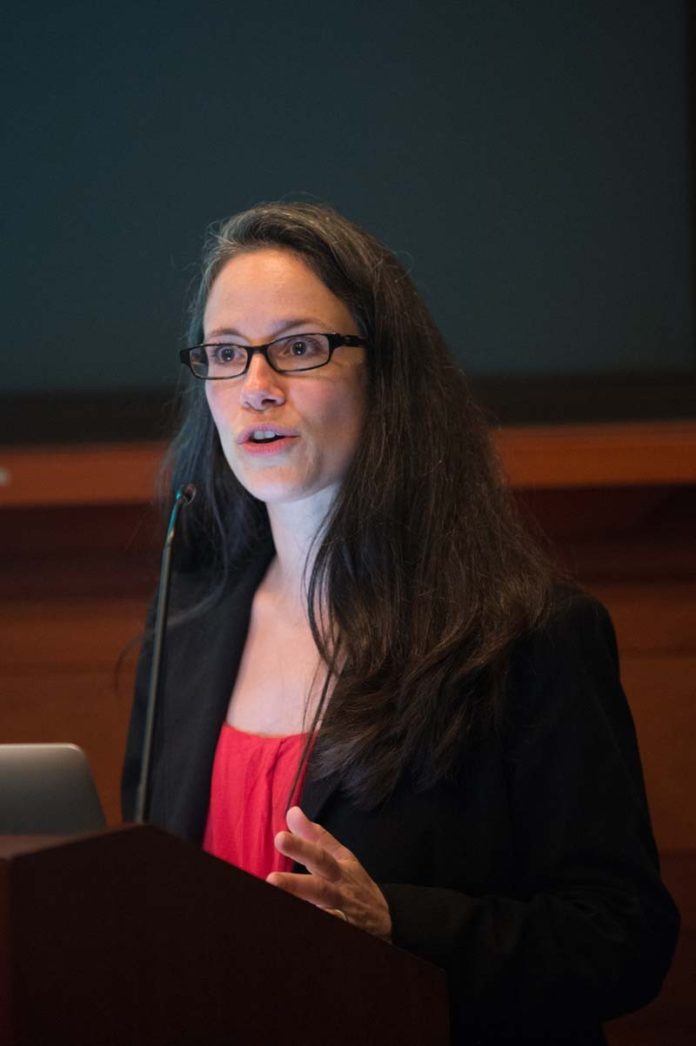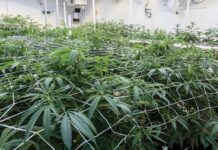
The escalating international concern over climate change has increased the demand for scientific information on the issue, along with a clear understanding of the impacts on society and the environment.
The mission of the Metcalf Institute for Marine & Environmental Reporting is to provide training for journalists so they improve their skills in covering science-based topics. Sunshine Menezes recognizes the critical timing element in the need for accurate, understandable coverage of climate change and how that converges with Metcalf Institute’s mission and resources.
The action sparked by that convergence is to expand a highly successful program that has been bringing journalists from around the world to Rhode Island and take it on the road.
Metcalf’s first out-of-state climate change seminar was held in September in Seattle, with additional locations on the agenda.
PBN: What influenced the creation of this new on-the-road phase of programs by Metcalf Institute for Marine & Environmental Reporting?
MENEZES: We have this very effective training model and we’ve been wanting to take it on the road for some time. For us, since we are funded by grants and donations, it’s always just a matter of finding the money to support this kind of thing. We received a grant this year from the Grantham Foundation for the Protection of the Environment. It’s a four-year grant and it supports us going to these different regions of the country and developing these one-to-two day seminars that look at the regional impacts of climate change.
PBN: What’s the structure of the new traveling program? How is it different from the seminars Metcalf has been doing at URI for 15 years, like the weeklong science-immersion workshop for journalists and one-or-two day science seminars for reporters?
PBN: What influenced the choice of Seattle as the first location?
MENEZES: We partnered with The Seattle Times because we have worked with their former executive editor for years and we developed this idea together before he left for another position. We wanted to go to place where we knew we would have a really strong news partner and also a place where we knew there was a strong interest in this topic, so Seattle was perfect for us. Seattle and the entire Pacific Northwest have really been hit hard already by climate change.
PBN: What kind of response did you have for the first program on Sept. 6-7 in Seattle?
MENEZES: We had 29 journalists and the dean of a journalism program. We decided to include the dean because he reaches so many future journalists. We had a huge number of applications for the program. We actually had to turn away as many reporters as we accepted.
PBN: Does this traveling program change depending on location? PBN: Where are you planning to hold the future climate-change programs? PBN: Do you think taking this program on the road has benefits for Rhode Island and URI? MENEZES: It’s great for Rhode Island and URI and the Graduate School of Oceanography to get this boost in public profile. We develop resource lists for these programs that include research from a broad variety of scientists from URI and other institutions. I think of this program as us bringing some of the research and topics looked at here in Rhode Island, that typically are only known within scientific circles, to a much broader audience of nonscientists. • INTERVIEW
MENEZES: We want to help reporters cover environmental stories more often and to help them do it well. For our purposes, doing it well means writing clear, scientifically accurate stories that are relevant to their audiences. The overall program is Climate Change Seminars for Journalists, but we do focus in on the region. The Seattle program was called Climate Change Impacts in the Northwest and the future ones will have a similar regional focus.
MENEZES: Our plan is to offer one in the mid-Atlantic next spring, probably in Washington, D.C., for political reporters. The thinking behind that is the regional impacts of climate change in Washington, D.C. are largely political. We’re going to be doing one in Chicago next fall, looking at the Great Lakes region. For that one, we’re going to team up with the American Society of News Editors, who are holding a joint conference in Chicago with the Associated Press Media Editors. In 2015, we’re going to do one in Southern California, probably near Los Angeles, and then we’ll do one in the Gulf of Mexico region.
Sunshine Menezes
POSITION: Executive director of Metcalf Institute for Marine & Environmental Reporting and associate director of the Office of Marine Programs at the University of Rhode Island Graduate School of Oceanography
BACKGROUND: Raised in rural northern Michigan, Menezes came to URI for her Ph.D. She was awarded a fellowship to work on marine policy and spent a year in Washington, D.C., as a legislative assistant for a congressman. She’s been in her current position since May 2006.
EDUCATION: Bachelor’s degree in zoology from Michigan State University, 1995; Ph.D. in oceanography from University of Rhode Island Graduate School of Oceanography, 2005.
FIRST JOB: Convenience-store cashier
RESIDENCE: South Kingstown
AGE: 40












